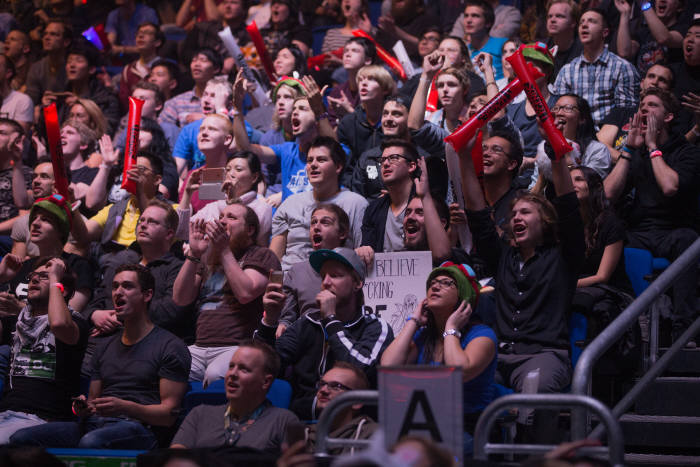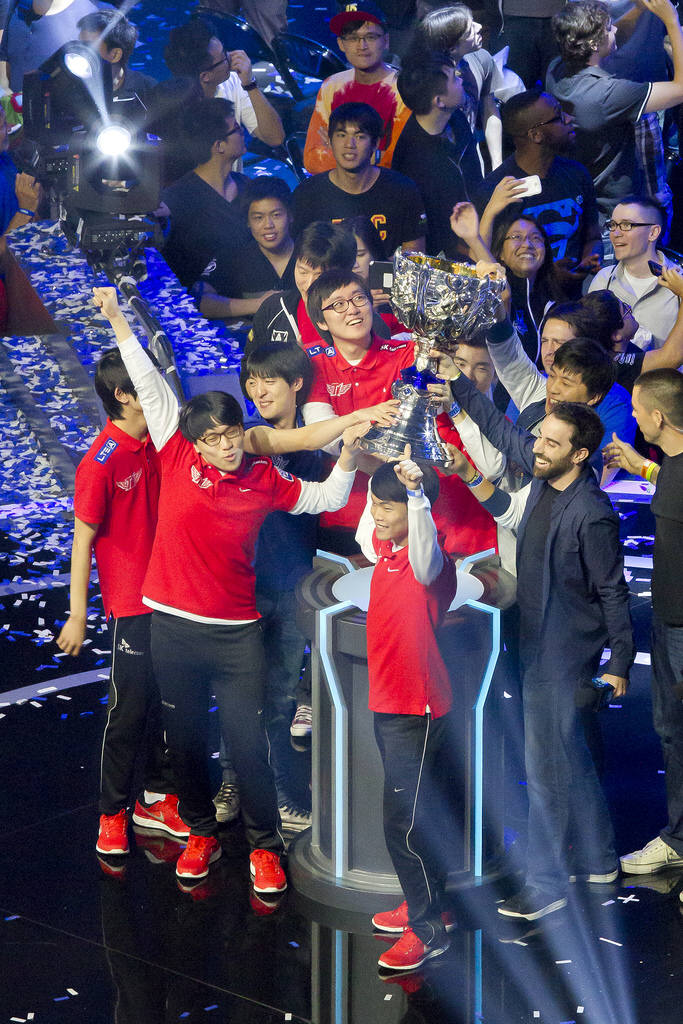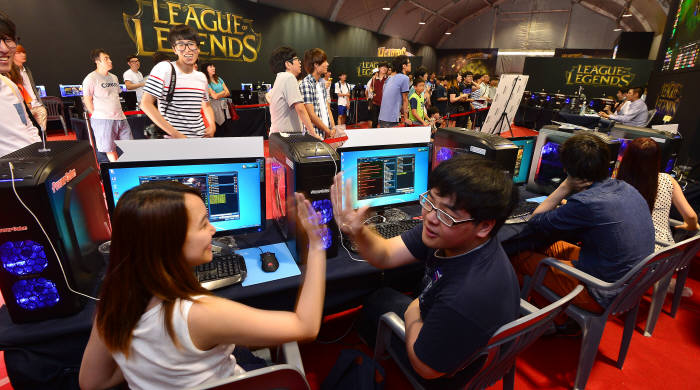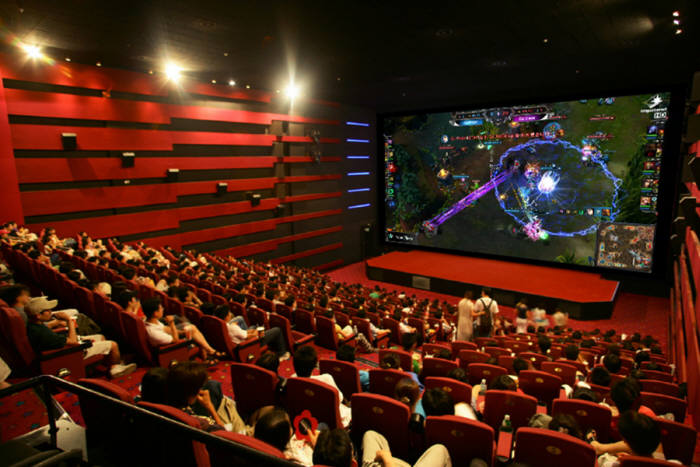https://www.latimes.com/local/lanow/la-me-ln-court-interpreter-20170905-story.html
Federal law enforcement began investigating California’s courts seven years ago after receiving complaints that two Korean-speaking women in Los Angeles had been denied court interpreters.
Courts in other states also were examined and faulted. Along with California, they began working to comply with U.S civil rights law, which bars discrimination based on national origin. Failure to act meant the possible loss of federal money.
But nowhere has the task been so challenging as in California, the most linguistically diverse state in the nation.
At least 220 languages are spoken in California, and 44% of residents speak a language other than English at home. Seven million Californians say they cannot speak English well.
On top of that, California’s court system is considered the largest in the nation, surpassing in size the entire labyrinth of federal courts.
This is not the kind of challenge you can simply meet in three years and then declare victory.
SUPREME COURT JUSTICE MARIANO-FLORENTINO CUÉLLAR, ON THE STATE’S EFFORT TO EXPAND COURTROOM TRANSLATION PROGRAMS
Just finding enough trained interpreters has proved daunting. The state’s courts handle as many as eight million cases a year.
Now two years into its enforcement phase, California’s “language access plan” is pushing courts to provide interpreters for all non-English speakers in all cases.
As of December, 47 of 58 county courts said they were offering interpreters in high-priority civil disputes, including those involving protective orders, child custody and other family law matters, evictions, guardianship and conservatorship and elder abuse.
“The goal is to get interpreters available in all case types,” said 1st District Court of Appeal Justice Terence L. Bruiniers.
“But the reality is we are never going to have enough qualified interpreters in enough languages for every courtroom that needs them at the time they need them,” he said. “That is just not going to be possible.”
California has long provided interpreters for criminal and juvenile cases. The law now says they must offer them also in civil courtrooms.
In the past, non-English-speaking litigants were on their own when they went to court to fight evictions, obtain restraining orders and resolve child custody disputes
Children sometimes interpreted for warring parents. One court employee recalled a woman seeking a domestic violence restraining order having to interpret for her alleged abuser.
Some judges said they felt uncomfortable when they received a one-word translation from an amateur interpreter even though the litigant had spoken at length in his native language.
Contra Costa Superior Court Judge Steven Austin recalled a Spanish-speaking woman in his courtroom 10 years ago seeking a restraining order against her ex-boyfriend.
“He mean to me,” she had written on a legal form.
Austin needed more information to grant the order, but the woman spoke too little English to explain her fears. He rounded up a bilingual person to interpret.
Later he read in the newspaper that the ex-boyfriend had visited the woman’s home. He had a gun, and she called police.
“It was just by luck I was able to find somebody to help,” he said. “It could have been a tragedy.”
The federal probe came in response to a complaint filed by legal aid lawyers on behalf of two women: a sexual assault victim seeking a restraining order against her attacker and a mother asking for child custody and support.
Los Angeles Superior Court denied them interpreters, even they spoke only Korean, the complaint said.
Los Angeles court officials worked with federal authorities to bring in more interpreters, and today the Superior Court is considered the most advanced in the state in providing language help.
Yet even in Los Angeles there are troubles. Just a few months ago an Arabic speaker went to court to try to obtain a restraining order against her ex-husband.
It took four court appearances and months to obtain the order because of the difficulty of getting an interpreter. On one day, an interpreter promised to return after lunch to handle her case but never came back.
During each visit, the woman was forced to face her ex-husband.
“It was incredibly traumatizing for her to repeatedly have to face her abuser,” said Carmen McDonald, supervising attorney for the L.A. Center for Law and Justice, who related the story.
The push for interpreters comes at a time when California’s court system has yet to recover from recession-era budget cutbacks. Courtrooms remain closed and judges’ positions vacant.
But the Legislature and Gov. Jerry Brown have been sympathetic to the language campaign and provided $7 million during the past fiscal year.
“This is a popular issue,” said Austin, the Contra Costa County judge. “I went to the Legislature to talk to people about it, and it was very popular with both the governor’s office and individual legislators.”
The languages for which interpreters are needed are Spanish, Vietnamese, Korean, American Sign, Mandarin, Farsi, Cantonese, Russian, Tagalog, Arabic and Punjabi.
But depending on the location of the court, that list expands. It includes Cambodian/Khmer, Japanese, Malayalam, Hmong, Lao and even dialects of the Aleutian Islands.
Ventura County Superior Court Judge Manuel J. Covarrubias recalled using “a relay” in one case.
A defendant knew only Mixteco, an indigenous language spoken in parts of Mexico.
The only interpreter who could be found did not speak English. So that person translated Mixteco into Spanish, and a second translated the Spanish into English, said Covarrubias, who has helped lead the courts’ language efforts.
California now has about 2,000 qualified court interpreters but still too few to handle the demand.
Getting certified is a hurdle. Only about 10% pass the state examination. The job pays up to $77,000 a year.
Interpreters must show proficiency not just in everyday language but in understanding and translating legal jargon and expert evidence.
“It is a big jump between bilingualism and the ability to interpret,” said Tracy Clark, who supervises interpreter services for Ventura County courts.
Being able to convey someone else’s thoughts immediately in a noisy courtroom and word for word “is a whole other level of language competence,” she said.
Clark said she has had to fly in interpreters from across the country but sometimes can’t get one “even if I could have found a flight.”
She sends Spanish interpreters every day into criminal and traffic courts, and hires others as needed.
Describing her work so far in a single week, Clark related that on one day she had to find interpreters for three languages other than Spanish, the next day four languages and the day after that seven.
Ventura, Sacramento and Merced County courts are set to begin a pilot project this month in which interpreters will participate in short hearings via a live video feed.
If the project succeeds, it may be repeated in other courtrooms around the state.
The plan has made some interpreters nervous. They say seeing a litigant’s face is important, as is being able to signal the judge if a stack of papers nearby falls, drowning out words.
California Supreme Court Justice Mariano-Florentino Cuéllar, who emigrated from Mexico as a boy, became a legal scholar and joined the seven-member high court after being appointed by Brown, heads a task force assigned to enforce the language plan.
He ran an institute at Stanford University and worked to develop and enforce policy at the White House under two Democratic administrations.
“This is not the kind of challenge you can simply meet in three years and then declare victory,” Cuellar said. “It requires long-term commitment and vigilance.”
Kevin Baker, legislative director of the ACLU of California and a task force member, said he sees “a culture of resistance in a lot of pockets of the courts.”
Judges tend to be tradition-bound and want to move the court calendar along, he said. Getting interpreters takes time and also delays resolution of cases.
Some court leaders also have pushed back on a proposed complaint system for the language plan, he said.
Although state law now requires interpreters in civil cases, some county court websites still limit the languages that will be offered or say litigants should bring their own interpreters, said Stephen Goldberg, regional counsel for Legal Services of Northern California, which represents poor people in civil cases. Some use telephone interpreters, he said.
Interpreters also are only part of the solution.
Court signs must be posted in multiple languages, legal documents translated and court-ordered services, such as a program on alcohol abuse, must be offered in the languages of the participants, judges said.
“The difficulties are real, and sometimes difficulties can be frustrating,” Cuellar said. “But almost everything worth doing is difficult.”









